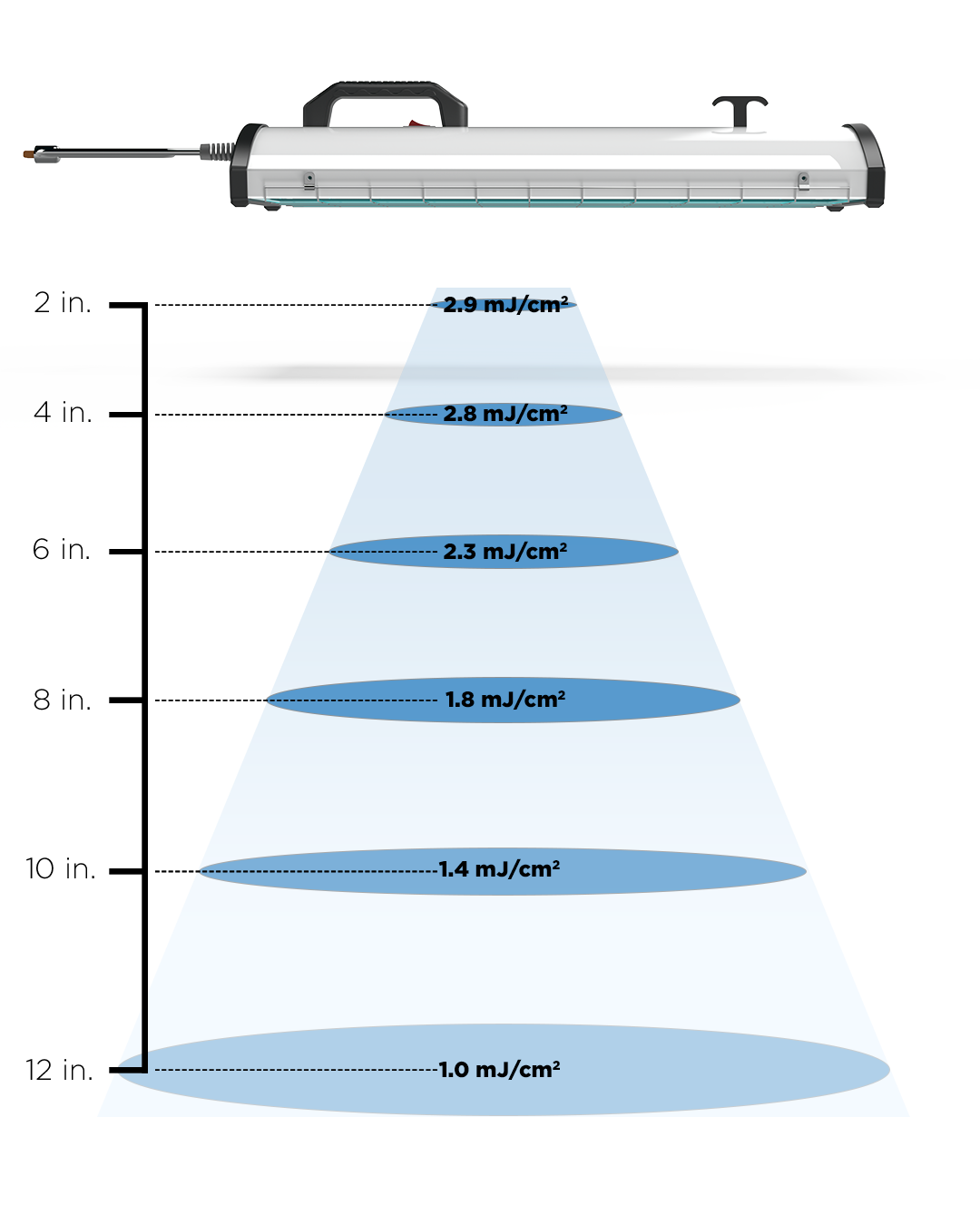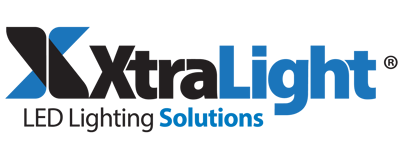
UV Disinfection Systems
Featuring both Mobile & Handheld models, the UV-C High Power Ultraviolet Disinfection System is designed to easily inactivate all microorganisms. These systems are highly effective against dangerous viruses including COVID-19, Salmonella, E-Coli, Polio, Strep, and many other microorganisms. This process is 100% chemical-free leaving behind no by-products making it a great solution for disinfecting large commercial spaces.
To learn more about our High-Power UV Disinfection Systems please click here.
Can UVC inactivate COVID-19?
- COVID-19 is the respiratory disease caused by the SARS-CoV-2 virus that has caused outbreaks worldwide. The SARS-CoV-2 is a new variant in the betacoronavirus family (Fisher 2020).
- COVID-19 is a small, single-stranded RNA virus that makes it much easier to inactivate in comparison to mold or any sporicidal pathogen.
“The inactivation rates of the small RNA viruses, poliovirus 1, and coxsackievirus B4, by low pressure UV were very rapid and reached approximately 4 log and greater than 5 log, respectively, within a UV dose of 30 mJ/cm2.” – Environmental Protection Agency
- UVC probably destroys the novel coronavirus, but we need to learn more.
- UVC has been found to destroy viruses and other microbes on surfaces.
- The U.S. government and the UV technology industry are working to define standards for UV disinfection technologies in healthcare settings.
- Most UV sanitizers have not been tested against the novel coronavirus, SARS-CoV-2, but UVC has been shown to destroy related coronaviruses, including the one that causes the disease MERS.
MICROBE
DOSE (Log 1)
mJ/cm2
Coronavirus
.7 mJ/cm2
Berne virus (Coronaviridae)
.7 mJ/cm2
Murine Coronavirus (MHV)
1.5 mJ/cm2
Canine Coronavirus (CCV)
2.9 mJ/cm2
Murine Coronavirus (MHV)
2.9 mJ/cm2
SARS Coronavirus CoV-P9
4.0 mJ/cm2
Murine Coronavirus (MHV)
10.3 mJ/cm2
SARS Coronavirus (Hanoi)
13.4 mJ/cm2
SARS Coronavirus (Urbani)
24.1 mJ/cm2
AVERAGE
6.7 mJ/cm2
Kowalski, Wladyslaw & Walsh, Thomas & Petraitis, Vidmantas. (2020). 2020 COVID-19 Coronavirus Ultraviolet Susceptibility. 10.13140/RG.2.2.22803.22566.
How Does UVC Work?
When UVC wavelengths enter a cell, it disables the cell by damaging critical nucleic acids and proteins by forming duplicate bonds called dimers rendering the organism inactive or unable to reproduce. The germicidal effects of UVC wavelengths neutralize a wide variety of pathogens. UVC light enters the cell's nucleus, causing irreversible damage to RNA (Viruses) and DNA (Bacteria).
This UVC disinfection system is effective with proper dosages on bacteria, viruses, fungi, and protozoa on a variety of surfaces, materials, and objects.
"UV light between 200-280 nm inactivates at least 2 other coronaviruses that are near relative of COVID-19 (SARS-COV-1 and MERS-COV)"
Applications of UV Light
UVC: Eliminates Mold, viruses, and bacteria in the air & surfaces, disinfects drinking water & treatment of sewage.
UVB: Phototherapy, skin treatment, Vitamin D production, and cannabis THC potency.
UVA: Tanning, treatment of skin diseases, indoor gardening, eradicating bugs, improving air quality, and object identification.


UVC Disinfection
Viruses are much easier to kill than bacteria and mold, as viruses are much smaller in size. Increasing the dosage time increases disinfection effectiveness.
See our UV Dosage for a Given Log Reduction document for a list of common pathogens and the required UV dosages.
|
XLM Product |
Distance |
Exposure Time = |
UV Intensity / |
UV Dose |
|
Handheld |
4 in. |
17 sec |
2.80 mJ/cm2 |
50 mJ/cm2 |
|
Mobile |
5 ft |
6 min |
.34 mJ/cm2 |
50 mJ/cm2 |
|
10 ft |
17 min |
.08 mJ/cm2 |
50 mJ/cm2 |
|
|
15 ft |
28 min |
.03 mJ/cm2 |
50 mJ/cm2 |
UVC Disinfection Dosages
The average bacterium will be deactivated in 17 seconds at a distance of 4 in. with our Handheld system. Disinfection effectiveness increases as the processing time increases, however, effectiveness decreases as the distance from the surface to the lamp increases.
Using Dosimeter Cards we can accurately provide disinfection assurance data for any application-space. Other disinfection variables include: The Pathogen, Square Footage of Disinfection Space, Distance of the Lamp from the Surface, and mJ/cm2
To Learn more on Dosimeter Cards, check out our "UV Dosage for Disinfection" blog here.
We have created a log for your business to record UV-C treatment times. It can be customized with your logo. Download the word document here
How to Determine UV Exposure Time
Follow these steps for an effective disinfection process. Click on the link to our blog for details on each step
Follow step by step instructions by clicking here
- Follow Safety Guidelines
- Understand Basic UVC Terms
- Identify Targeted Microorganisms / Log Reduction
4. Audit/Survey Disinfection
5. Calculate UV Dose for Treatment
6. UV Dosimeter Cards and Disinfection Assurance
What The Experts Are Saying
We have provided a list of websites for your reference. The research is out there - UVC is effective in inactivating pathogens.

